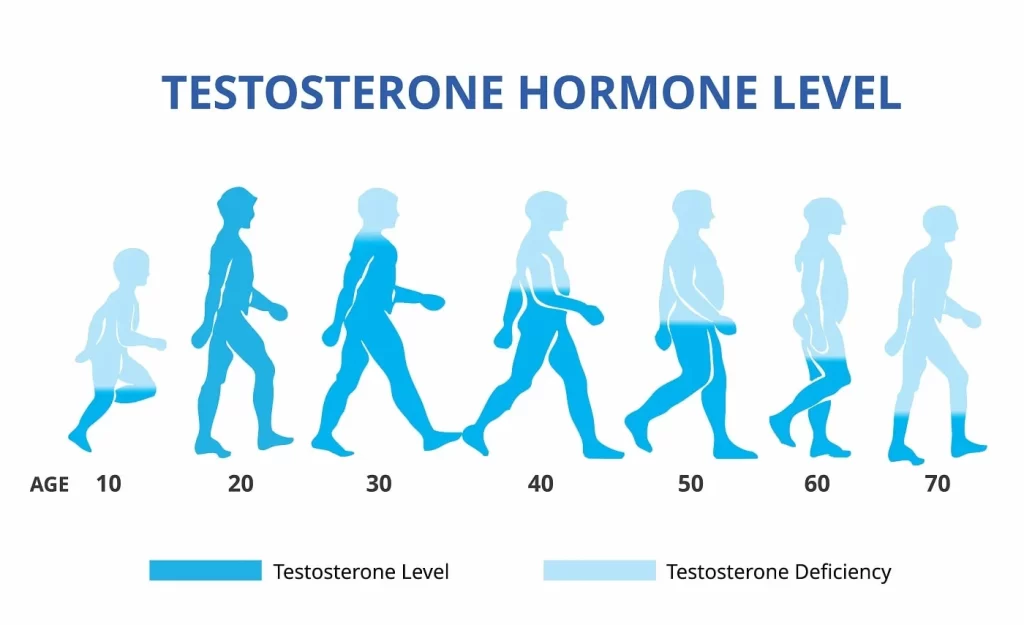Top 10 Benefits of Magnesium for Men & Best Food Sources
Top 10 Benefits of Magnesium for Men & Best Food Sources
Benefits of Magnesium for Men:
- Supports testosterone production and hormonal balance.
- Improves muscle recovery and reduces cramps.
- Enhances brain function and mental clarity.
- Boosts heart health and regulates blood pressure.
- Strengthens bones and prevents osteoporosis.
- Aids in better sleep and stress management.
- Supports healthy metabolism and energy production.
- Improves insulin sensitivity and regulates blood sugar levels.
- Reduces inflammation and strengthens the immune system.
- Promotes digestive health and prevents constipation.

Introduction
Magnesium is a vital mineral that plays a crucial role in over 300 enzymatic reactions in the body. It is essential for muscle function, nerve health, bone strength, and cardiovascular well-being. Unfortunately, many men do not get enough magnesium in their diet, leading to deficiencies that can affect overall health and performance.
This article explores the top 10 benefits of magnesium for men, along with the best dietary sources to ensure optimal levels for a healthy lifestyle.
1. Supports Testosterone Production and Hormonal Balance
Testosterone is the primary male hormone responsible for muscle growth, energy levels, and sexual health. Magnesium plays a significant role in maintaining optimal testosterone levels by reducing oxidative stress and regulating hormone production.

How Magnesium Helps:
- Increases free testosterone levels.
- Reduces the effects of stress hormones like cortisol.
- Enhances overall reproductive health.
2. Improves Muscle Recovery and Reduces Cramps
Magnesium is essential for muscle contraction and relaxation. Low levels of this mineral can lead to muscle spasms, cramps, and slow recovery after workouts.
How Magnesium Helps:
- Reduces muscle soreness and tension.
- Enhances post-workout recovery.
- Prevents exercise-induced cramps.

3. Enhances Brain Function and Mental Clarity
Cognitive health is crucial for overall well-being. Magnesium supports neurotransmitter function and protects brain cells from oxidative damage, leading to improved focus and memory.
How Magnesium Helps:
- Boosts memory and learning capacity.
- Reduces stress and anxiety levels.
- Protects against neurodegenerative diseases.

4. Boosts Heart Health and Regulates Blood Pressure
A healthy heart is essential for longevity, and magnesium plays a crucial role in maintaining cardiovascular function. It helps regulate blood pressure, reduce arterial stiffness, and lower the risk of heart disease.
How Magnesium Helps:
- Supports normal heart rhythm.
- Prevents high blood pressure.
- Reduces the risk of heart disease.
5. Strengthens Bones and Prevents Osteoporosis
Many people associate calcium with bone health, but magnesium is just as important. It aids in calcium absorption and helps maintain strong bones.
How Magnesium Helps:
- Enhances bone density.
- Reduces the risk of fractures and osteoporosis.
- Supports joint health.
6. Aids in Better Sleep and Stress Management
Magnesium plays a vital role in relaxation and sleep quality. It helps regulate neurotransmitters that promote calmness and relaxation, leading to better rest and reduced stress.
How Magnesium Helps:
- Promotes deep and restful sleep.
- Reduces cortisol levels, the stress hormone.
- Helps in managing anxiety and depression.

7. Supports Healthy Metabolism and Energy Production
Magnesium is necessary for ATP production, which is the body’s main energy currency. It ensures that the metabolism functions efficiently.
How Magnesium Helps:
- Enhances energy levels.
- Prevents fatigue and weakness.
- Supports metabolic efficiency.

8. Improves Insulin Sensitivity and Regulates Blood Sugar Levels
Maintaining stable blood sugar levels is crucial for preventing diabetes and metabolic disorders. Magnesium helps insulin function properly, making it essential for glucose control.
How Magnesium Helps:
- Improves insulin sensitivity.
- Regulates blood sugar levels.
- Reduces the risk of type 2 diabetes.
9. Reduces Inflammation and Strengthens the Immune System
Chronic inflammation is a leading cause of various diseases, and magnesium plays an anti-inflammatory role in the body.
How Magnesium Helps:
- Lowers inflammation markers.
- Boosts immune response.
- Protects against chronic diseases.

10. Promotes Digestive Health and Prevents Constipation
A healthy digestive system ensures better nutrient absorption and waste elimination. Magnesium helps relax intestinal muscles, allowing for smoother bowel movements.
How Magnesium Helps:
- Prevents constipation and bloating.
- Supports gut microbiome balance.
- Enhances overall digestive function.
Best Food Sources of Magnesium
Ensuring adequate magnesium intake through diet is essential for optimal health. Here are some of the best natural sources of magnesium:
Animal-Based Sources:
- Salmon
- Mackerel
- Chicken
- Beef
- Dairy products (milk, yogurt, cheese)

Plant-Based Sources:
- Pumpkin seeds
- Almonds and cashews
- Dark chocolate (at least 70% cocoa)
- Spinach and kale
- Avocados
- Legumes (black beans, lentils, chickpeas)
- Whole grains (quinoa, brown rice, oats)
If dietary intake is insufficient, magnesium supplements can help bridge the gap to meet daily requirements.

Conclusion
Magnesium is an essential mineral that plays a critical role in male health. From boosting testosterone and muscle recovery to enhancing brain function and heart health, its benefits are wide-ranging. Ensuring a diet rich in magnesium-containing foods can help men maintain peak performance, both physically and mentally.
If you experience signs of magnesium deficiency—such as fatigue, muscle cramps, or stress—it may be time to increase your intake through diet or supplementation.


